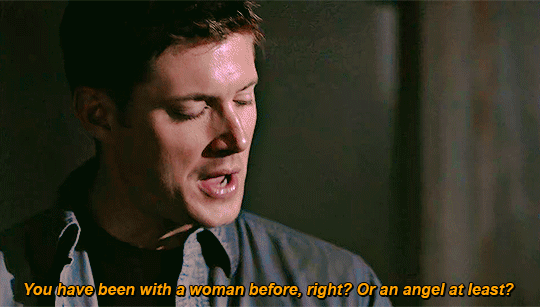
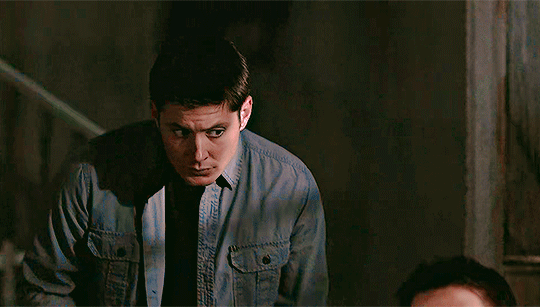
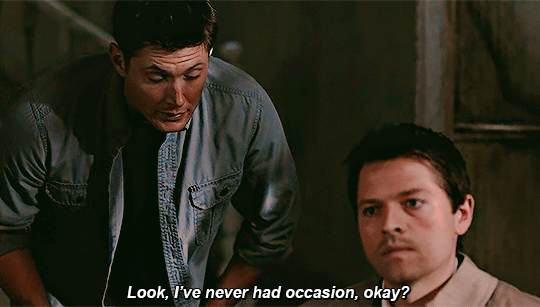
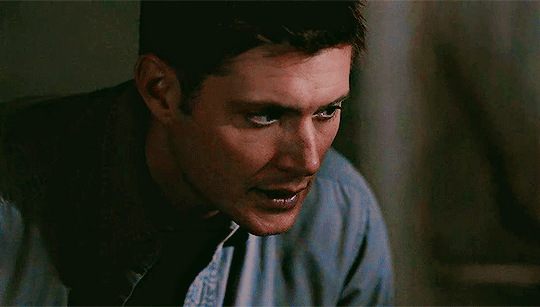
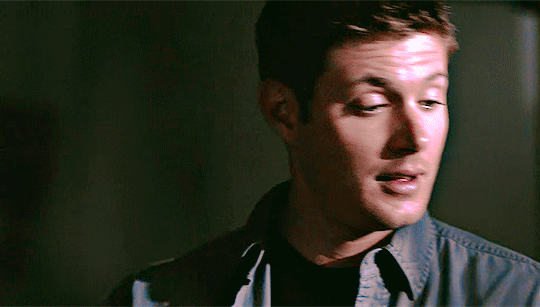
Last image is the face of a man who just decided he's gonna be bottoming tonight.
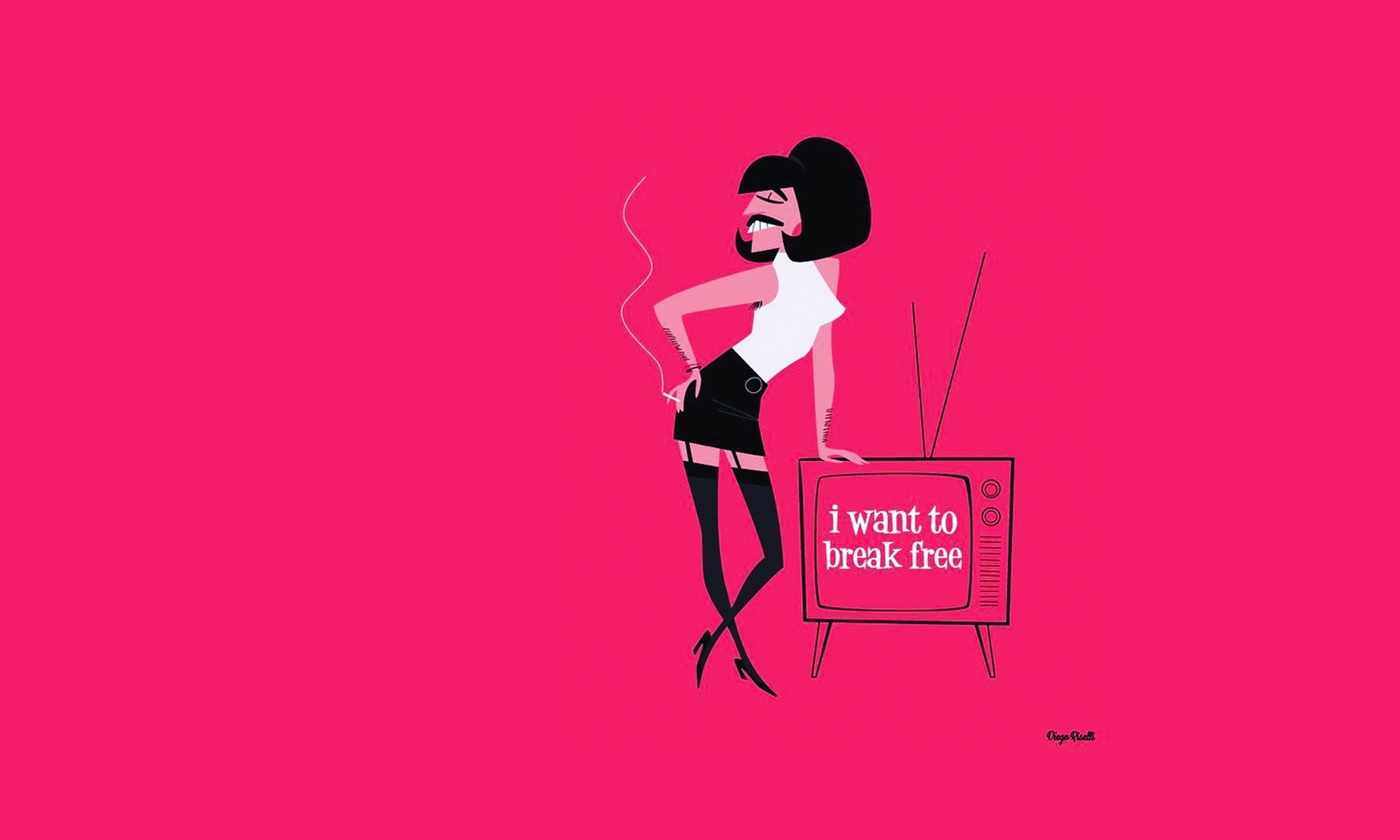
Once a legitimate blog. Now just a collection of memes 'n menz.





Last image is the face of a man who just decided he's gonna be bottoming tonight.
But as this graph suggests, I don't think current viewership would've justified or sustained a fifth and final season.
But let's say for a moment that HBO did renew for a 5th season. What do you reckon viewership would look like? Did HBO make the right decision? Or was there nothing left to salvage?
I stumbled upon this via Amazon Prime. The first season did a good job of putting a new spin on this well-worn story. Engaging characters, lush sets and cinematography, beaucoup interpersonal and familial drama (some with a oversize "ick" factor), some decent eye candy (who unfortunately seem to get killed off all too often), and aliens who were decidedly not what you normally encounter in this kind of story.

When I was finished with that first season, I was disappointed that the second and third seasons were not available via Amazon; that I'd have to subscribe to EpixNOW to see how the story played out. I was engaged, so I laid out $15 for a six-month subscription.
And then…Season Two happened.

[Spoilers ahead, not that I'm sure any of you care.]
So the aliens presented in Season One weren't actually the aliens. They were just the aliens' tools. And the real aliens? As revealed in the final episode of Season One, uniformly Caucasian, English-speaking humans…who (revealed in Season Two) share DNA with several earthly humans in the story. How could this be?!
"For he is the Kwisatz Haderach!"
Sorry, wrong fandom.
Early into the second season, it's determined that the attacking humans are indeed human, albeit with a plethora of genetic defects. (This explains why the alien robo-dogs were abducting babies and cutting fetuses out of pregnant women – it was for the stem cells.) In the blink of an eye, all the sick aliens are back to full health but still on the offensive, killing as many of the remaining human residents of planet earth as possible. Because reasons.
I made it about halfway through the second season before I hit the internet and got the whole story (at least through where we currently are in the third season) and gave up actually watching any more of it.
Time travel, parallel universes…and pretty much every worn out sci-fi trope out there.
Le sigh. And it had such promise.
Maybe there's something else on EpixNOW I can watch. If not, $15 is less than the cost of three coffees, so it's not like I threw away a lot of money.
While nothing would please me more than if Buck and Eddie came out as boyfriends (I'm not the only one who's gotten that vibe from these characters, but again, maybe it's just personal projection because I want to see them together), teh ghey is already fully represented in the show by the characters Hen and Karen, and I'm fine with that.
HOWEVER…
I don't mind them being shipped by the fandom, and I think these are brilliant:
I mean I knew about Kirk/Spock slash, but…oh my.
Set in the mid 90s, Season 3 of For All Mankind wrapped up this week with a very satisfying ending.
Warning: Spoilers ahead.
I love how the writers of the series are creating a wholly believable alternate timeline, one that mirrors of events in our own—but always with a twist.
Case in point, the Oklahoma City bombing. In the timeline of FAM, it's not Oklahoma City, but rather the Johnson Space Center in Houston that was the target of the bomber(s). The results were no less horrific, and at least one main character—and possibly more—did not survive.
The American/Russian team on the surface of Mars received an unexpected guest. This guest turned out to be the first human on Mars, beating all the other teams to the surface not by days or hours, but by months…and they were from North Korea.
Baby Momma Kelly safely made it back up to the orbiting Phoenix, where she successfully gave birth to her Russian-American love child.
The truth finally came out about who caused the drilling disaster that led to the events of the final two episodes. Granted, it was by his own admission, but it still resulted in his exile from the rest of the crew—spending his remaining days and nights on Mars in—of all places—the North Korean capsule.
As with any drama, there were more than a few WTF moments over the past ten episodes, but not so many or so egregious that they took you out of the story as it was unfolding.
It will be interesting to see how the First Lesbian President of the United States story plays out next year, not to mention the fate of the first crew on Mars, now forced to remain an additional fifteen months with limited supplies while they wait for a rescue ship from Earth.
Margo's Russian love interest, who had been imprisoned in the Soviet Union for most of the season, was finally spirited to the West. And in the most prescient moment of the series thus far, Margo, now facing imminent FBI investigation for—you guessed it—espionage—ends up in Moscow in the final scene of the season, that was prefaced with "2003."
…but I agree with everything Mr. Murrell has to say about Season Two.
I mean, I enjoyed the second season of Picard while I was watching it. I was able to ignore the issues brought up in this video on a weekly basis, but looking back on the entire season once it finished I was so very…disappointed. It could've been so much more.
Two episodes into Season 4 and IMHO, they've already made up for the mess that was Season 3. After Season 3 I had no idea where they'd take the story or what they'd do to recapture that original Westworld magic, but I have to say that so far they've managed to do it.
More unsolicited opinions to come…
Westworld has long been one of those series that was so densely packed even the usual 16-month break between seasons was enough to send everyone searching their memory banks to be brought current before diving into each subsequent season, but with the added complication of COVID postponing production and the location sets burning to the ground during the recent California wildfires, I was starting to wonder if there ever was even going to be a Season 4.
I was therefore quite surprised when on a whim I googled "Westworld Season 4" a few months ago and learned that despite the abysmal ratings of Season 3, production had wrapped on Season 4 and it would be returning this summer.
If anyone needs a refresher of the story before jumping back in, GQ provides a fine summary:
Before last Sunday's season premiere of the fourth season of Westworld, HBO provided a one-minute recap to sum up 28 episodes of one of the most densely mythology-packed series in recent memory. The twisty, ever-expanding plot can be pretty inscrutable to track week-to-week. So imagine how tricky it is to remember what's going on now that the show has returned for its fourth season after two years away.
For those who needed more than a 60-second refresher course of all the Russian nesting dolls of worlds within worlds, GQ provides this comprehensive explainer about the major players of Westworld, where they left off in season three, and all the threads might come together. Oh, and as a bonus, we've also detailed how those events play into Sunday's premiere. So bring yourself online for a deep dive into everything you could possibly need to know for Westworld.
The Big Picture
In seasons one and two, Westworld mostly focused on the titular adult theme park, which functions as a sort of real-life version of Red Dead Redemption: wealthy guests pay to play good guy or bad guy in a sprawling Old West setting, either saving, killing, or having sex with the various robotic "hosts" that populate the theme park, and cannot feel pain. That is, until two of them gained consciousness and became sentient: Dolores (Evan Rachel Wood), the park's original host/damsel in distress archetype, and Maeve (Thandie Newton), a frontier mother who was eventually repurposed as the madam at a local brothel. Upon realizing that their existence is a sham (and a loop of tragedy and death), the pair fomented a rebellion of their fellow hosts.
As seasons two and three unfolded, the plot expanded far beyond Westworld's borders. Here are the major characters and plot devices, and where we left them:
Delos is the company behind Westworld, and it was revealed in season two that it was collecting data on its wealthy guests in a server, Sublime, which doubled as a virtual afterlife (created by Anthony Hopkins' Doctor Ford, the inventor of Westworld who died at the end of season one) for hosts who wanted to live away from humans. Originally, Delos never planned to do anything with the data other than to leverage it to understand its clients better and eventually offer them a more personalized experience. However, when the Man in Black (Ed Harris) — aka William, played in flashbacks by Jimmi Simpson, a young man who became addicted to the park in season one and eventually learned its secrets — learned of the existence of this data, he sought to use it to transfer the consciousness of selected guests (i.e., the super rich ones) to host bodies and effectively make them immortal.
Season three introduced a new villain, Serac (Vincent Cassel), the nefarious owner of the tech company Incite. Incite has invented an AI program called Rehoboam which, by analyzing the behavior of millions of humans, developed an algorithm that can predict people's futures. This data-informed ability to see — and know how to change — the future gives Serac power over the world's governments; at one point Serac tells the Brazilian president that Rehoboam sees a future in which civil unrest dethrones the president. How could that be possible? Turns out Rehoboam's data could allow Serac to manipulate soldiers and freedom fighters in the area by essentially messing with Brazil's currency, giving him leverage to create economic instability.
With enough data, Rehoboam will be unstoppable, and essentially able to eliminate all free will. That's why Serac is determined to take over Delos: Sublime has the data that Rehoboam needs. And the robot rebellion of season two has made Delos ripe for a hostile takeover.
Dolores: Robot Supremacist
Dolores is determined to take down Rehoboam for the same reason she wanted to take down Delos: After having spent years stripped of her agency in Westworld, she believes humans, not an algorithm, have the right to determine their own fate. In season two, she took control of the robot version of the late Executive Director of Delos, Charlotte Hale (Tessa Thompson) by transplanting her own consciousness into the Hale-bot, or "Halores," as it's known (at the end of season two, Dolores killed the human Hale). When Halores arrived on land outside of the Westworld park, she created a new Dolores host body and transferred her control unit (aka, a robot's consciousness) into it. Aiming to destroy Delos from within, she also transferred another control unit of herself into the old Hale body and sent it off to execute her will.
Charlotte Hale: Dolores' Pawn Turned Traitor
Halores was working from inside Delos to collect intel about Serac on behalf of the real Dolores. However, unbeknownst to either robot, the real Hale was working as a double agent for Serac inside Delos to help him take it over. Upon learning this, Halores finds the Man in Black (who was the single largest Delos shareholder) and forcibly collects his shares. Halores then plans to take Delos private, ensuring Serac can't get to the company.
An infuriated Serac then made his takeover literally hostile, planting and exploding a car bomb in an attempt to get Hale. The plan backfires, killing Hale's family instead. While pretending to be the real Hale (whom no one knows is actually dead), Halores had bonded with Hale's husband and child in ways that the real Hale hadn't. So when her family is murdered because of Dolores' plan, Halores felt used—and revolts against Dolores accordingly.
William, the Man in Black: The Villain
The Man in Black, aka William, is one of Westworld's oldest guests, having visited it every year for 34 years. He initially attended the park not long after it opened with his future brother in law, wherein he encountered Dolores for the first time. William's interest in Westworld is two-fold; he believes there's some sort of larger mystery inside the park for him to solve and that the data collected from the guests' time there can be partnered with a host body and then used to create immortality.. As such, the younger William encouraged his father-in-law, James Delos, to purchase the park so he can begin this project.
While grieving his daughter who died in season two, the Man in Black realized that Hale is controlled by Dolores. But before he acted, Halores had him sent to one of Incite's reeducation camps, where he was eventually discovered and freed by Bernard (Jeffrey Wright). Bernard attempted to recruit him in the fight against Serac, but William was too driven by his hatred of robots, and set out to kill Halores. However, he ended up being killed by a host replica of himself under her control. (That said, considering the number of times Westworld characters have come back from the dead, we'll leave open the possibility that this was a red herring.)
Maeve: Madame-Turned-Warrior
Most of Maeve's arc in season two involves her searching the park for her host daughter, only to be caught and captured by Delos after they realize she's a host capable of controlling other hosts. She eventually breaks free and helps a variety of other hosts enter the Sublime—but not before she's killed herself.
In season three, Maeve woke up in a WW2-style park, only to eventually realize it's a simulation Serac is running. As she emerged in the real world, she encountered Serac who told her they've used the down time to implant an off switch that can be leveraged to shut her down at any point. As such, Maeve is forced to hunt down Dolores on behalf of Serac, who believes Dolores holds the key to Sublime. Maeve eventually succeeded in capturing Dolores — but not before ultimately turning against Serac.
Caleb: Regular Guy?
Caleb (Aaron Paul) joined the show in season three as an everyman who randomly comes across Dolores after she'd been shot by Serac's men. Upon learning about Incite/Rehobaom, he teamed up with her to help her bring down Serac. As Caleb and Dolores explored Serac's intentions, the two realized Serac and his brother, Jean Mi, created a precursor to Rehobaom called Solomon. Solomon, much like Rehobaom, could predict who among the world's popular was unpredictable. In order to handle these "outliers," Solomon often sent these "messes" into high-risk activities where they were likely to die. Jean Mi was eventually deemed an outlier and at that point, Serac retasked Solomon with collecting other outliers and sending them to "Reconditioning Therapy" to edit them. The editing process involved removing or editing memories. If Solomon deemed them "tamed," they were sent back into the world. Those who failed that process were kept asleep in a kind of cold storage in the facility.
Dolores and Caleb came across one of these storage facilities in Mexico, wherein Caleb learned that he underwent reconditioning himself. While they were looking for Solomon, Dolores realized Serac placed an EMP inside the building in case Solomon ever got out of hand. Dolores and Caleb speak with Solomon, trying to get the system to change its ways. While they were doing this, Maeve showed up and battled Dolores. Dolores set an EMP off, powering down herself, Maeve, and Solomon. Caleb was able to collect Dolores' control unit and build her a new body; as the two headed out to take down Rehoboam, Maeve encountered Dolores again and eventually captured her to bring to Serac.
At Incite headquarters, Serac plugged Dolores into Rehoboam in an attempt to search for the Sublime key by ordering the AI to search through her memories. After the initial attempt failed, Serac then ordered the AI to search each individual memory and then delete it, which effectively removed her personality. As this was happening, her sacrifice inspired Caleb and Maeve to turn against Serac and Rehoboam. In her final moments, Dolores was somehow able to transfer control of Rehoboam to Caleb, but it's not exactly explained how this happened.
Caleb then ordered Rehoboam to erase itself. This doesn't go over well—and an apocalyptic riot began after the masses learned their free will had been being tampered with. Season three ended with Maeve and Caleb united, and turning their gaze skyward as riots begin to break out in a moment that draws heavily from the ending of Fight Club.
Bernard: The Secret Weapon
Bernard is a host version of Arnold Weber, who was the human co-creator of Westworld. Initially created by Doctor Ford, Bernard didn't realize he was a host, but it was eventually revealed to both himself (and the audience) that he'd been a robot all along. Bernard served as the head of Westworld's programming division. At the end of season two, he was shot and killed by Halores, who then did him a kindness and rebuilt him in the real-world.
After being accused of starting season two's Westworld riot, Bernard was on the run for most of season three but eventually crossed paths with Dolores, who warned him about Incite and Rehoboam — despite him wanting to stop her from what he believed was a mission to kill all humans and replace them with hosts. Oh, and he was also worried that when Dolores remade him, she altered his programming in some way. Bernard eventually tracked down William in an attempt to get him to help in the fight against Dolores, but William wanted to kill him (and all hosts for that matter). A team sent on behalf of Dolores arrived, chased off William, and then presented Bernard with a briefcase containing an address.
Upon his arrival at the location, Bernard eventually realized this is Arnold's actual house and then spoke with both Arnold's wife and son. Upon seeing them, Bernard remembered the two as if he'd spent a lifetime with them, and thus they provide a kind of closure for him that he didn't even realize that he needed. It's at this point that Bernard realized Dolores did do something to him when she re-built him: she provided him with a key to the Sublime. Bernard accessed it — he put on some sort of fancy headset — and then seemingly blacked out. Upon waking up, Bernard is covered in dirt and dust, emerging after what appears to be the end of the world.
Okay, Now for What Happened in the Season Four Premiere and What It Means… (Spoilerphobes Back Away Now!)
Turns out that Caleb's big revolution wasn't much of a revolution! Life has seemingly continued on as is — both he and Maeve moved on with their respective lives in the eight years since the destruction of Rehoboam; Caleb has a family and Maeve is living in a cabin, Dexter-style. However, William is seemingly in host mode, working for . . . someone… and is after both Maeve and Caleb. It's a bold choice by Westworld to jump this far into the future and ostensibly say that Dolores' big plan had no impact on the world — but we'll have to see what William has in store now that he's after Maeve and Caleb.
Speaking of Dolores, while it's clear she's very much dead and gone, Evan Rachel Wood is very much alive and kicking — albeit as a new character called Christina. Christina's story draws a lot of similarities to the very same loop we saw Dolores get out of during the pilot episode of Westworld all those years ago and it's clear based on the tone that something isn't quite right. Oh, and James Marsden is back?! The premiere certainly raised just as many questions as it may have answered. Which, when you think about it, is really Westworld in a nutshell.